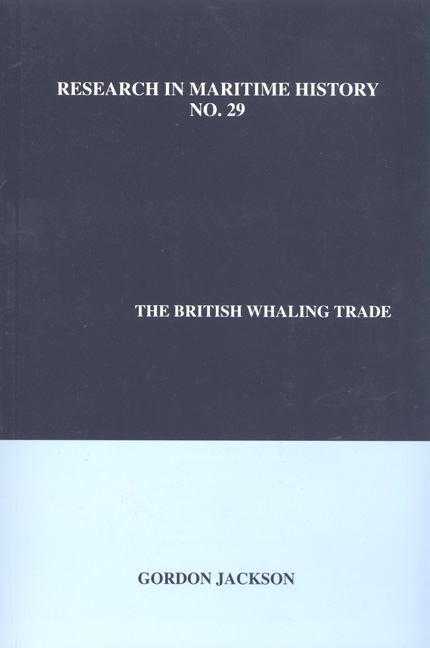Conclusion
Summary
British involvement in whaling lasted for three and a half centuries. It began with the expansion of Europe, when the whale was located in Arctic waters, and ended only when the virtual extinction of the whale made the trade unprofitable. Those in the last stages of the trade argued, when conscience pricked, that the extermination of the whale was impossible because the cost/yield ratio would prevent the catching of “too many” of the last specimens. It proved, in the event, to be a false argument based, perhaps, on too optimistic a view of human nature, or perhaps on a misunderstanding of the economics of whaling. When Europeans could no longer make whaling pay there were still those - the Russians and Japanese - who worked on different principles, and between them the various whaling nations have brought stocks so low that there are serious doubts if they can ever revive. With such mobile migratory marine animals there has to be a fairly large number before effective breeding can take place and nobody at the moment knows if the surviving specimens can provide for the future. Certainly the Right whale which has been protected throughout the modern phase of whaling has shown no appreciable increase in numbers. The abundance of food may encourage a revival of the blue and fin whales, but it has not yet done so, and scientists are pessimistic. One thing is absolutely clear: whatever happens to the survival of the whales, there can be no whaling in the foreseeable future among the baleen whales. Any attempt to revive the free-forall slaughter would simply return the species involved to the threshold of extinction.
The problem of over-fishing is in fact a recurring theme of whaling history. Each phase of the trade has undergone the same evolutionary process, the same crisis and the same demise. First came the discovery of the whales and their exploitations in the easiest bay fishery stage. Since, with the ruthless killing of young whales, and of nursing and pregnant females, the breeding bays were easily and rapidly fished out, there followed the seaborne hunting phase when the whales were sought in their feeding grounds or along their migratory routes. This was the more extensive and expensive phase.
- Type
- Chapter
- Information
- The British Whaling Trade , pp. 225 - 232Publisher: Liverpool University PressPrint publication year: 2004

